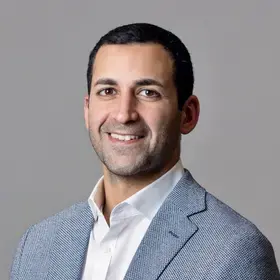Sharon Feldman, ’19SPS, Bioethics, gained an interest in clinical ethics while working as a healthcare attorney in her home country of Australia. She chose Columbia because of the opportunity to work with pioneers in the field. Now, she is completing a fellowship at the Cleveland Clinic with the eventual goal to bring her knowledge back to Australia to contribute to the emerging clinical ethics field there.
What led you to pursue a master’s degree in bioethics? Why Columbia?
Before pursuing my master’s degree in bioethics, I worked as a healthcare attorney in Australia. The majority of my work was in medical malpractice defense. I noticed that in so many of the cases that resulted in litigation, there was some communication issue or other non-technical grievance at play. When exploring how these issues could be addressed, I discovered the U.S. model of ethics consultation services. While there are some examples of such services in Australia, they are few and far between. I was fascinated with the field of clinical ethics and its potential to improve healthcare quality and decided to move to the U.S. to learn more.
I chose Columbia because I was excited by the course offerings and the opportunity to do a Clinical Ethics Practicum. The opportunity to take classes in other schools across the university was also very attractive to me. I took classes in the Law School, Mailman School of Public Health and the Irving Center's Department of Narrative Medicine. The cross-disciplinary nature of the program enriched my experience. And New York City was a pretty big pull for me, as well!
Being in New York City, where there is such a high concentration of talented, inspiring and generous people in this field, was the dream for me!”
Who was your favorite Bioethics professor and why?
Dr. Barrie Huberman’s Clinical Ethics Consultation course was my favorite. Clinical ethics is a practical discipline that involves identifying, analyzing and resolving ethical dilemmas that arise in patient care. By addressing ethical dilemmas in the clinical sphere, the field aims to improve the quality of patient care, as well as the experience of the patient and clinician.
I gained valuable insights from Dr. Huberman into what clinical ethics look like in real life and how this work can make an impact, which strengthened my belief that I was pursuing a career in the right field. The Clinical Ethics Consultation course also provided me with a strong grounding in several fundamental skills; it involved simulations of clinical ethics work, including mediations and clinician encounters. Although they were a little uncomfortable for the more introverted people like me, I found the simulation learning to be highly effective — especially when coupled with challenging and formative feedback, as it was in this course.
I chose Columbia because I was excited by the course offerings. I took classes in the Law School, Mailman School of Public Health and the Irving Medical Center’s Department of Narrative Medicine.”
What was your Columbia experience like as a student from Australia?
A lot like I had hoped! The field of clinical ethics is a relatively young one — only about 50 years old. And it has a much longer history in the U.S. than it does in Australia, where it’s just starting to gain momentum. While studying at Columbia, I had the opportunity to meet many pioneers in the field of clinical ethics. My professors and mentors made introductions for me and I had a few chance meetings that tend to happen in a place like New York City. My master’s thesis involved interviews with these pioneers, who generously shared their experiences of building successful clinical ethics programs from the ground up. Their experiences and insights will inform the work I want to do in Australia in the future. Being in New York City, where there is such a high concentration of talented, inspiring and generous people in this field, was the dream for me!
How did the program's co-curricular offerings enrich your classroom learning experience?
My most enriching co-curricular experience at Columbia was the Clinical Ethics Practicum I did under the mentorship of Dr. Ken Berkowitz at the U.S. Department of Veterans Affairs (VA) New York Harbor Healthcare System. After completing the rigorous process of acquiring a VA ID badge, I attended the hospital’s weekly ethics committee meeting. During these meetings, I was encouraged to participate in deliberations regarding hospital policies that raised ethical issues as well as practice questions brought to the committee by clinicians. In some cases, I was given the opportunity to prepare a first draft of the committee’s opinion. Equally valuable was the opportunity I had to spend time with Dr. Berkowitz and other ethicists in the VA National Center for Ethics in Health Care (NCEHC). They generously shared their experience designing and implementing the NCEHC model for managing ethics in health care organizations and their views on the future of the field. The practicum experience brought my classroom and independent learning to life and further cemented my desire to pursue a career in this field.
My most enriching co-curricular experience at Columbia was the Clinical Ethics Practicum I did under the mentorship of Dr. Ken Berkowitz at the U.S. Department of Veterans Affairs New York Harbor Healthcare System... I attended the hospital’s weekly ethics committee meeting [and] was encouraged to participate in deliberations.”
How has your experience at Columbia impacted your career since graduating?
Hugely. I am currently a fellow in the Cleveland Fellowship in Advanced Bioethics at the Cleveland Clinic. This is a two-year, full-time training program designed to prepare graduates for a career in clinical ethics. The role involves participating in the high-volume, 24/7 ethics consultation service of the Cleveland Clinic; 15 months in, I have been involved in close to 200 cases. I have also had the opportunity to teach ethics to bioethics master’s degree candidates, medical students and clinicians; participate in scholarly research and writing; and so much more! My coursework at Columbia, co-curricular activities and support from professors and mentors allowed me to take this next step in my career.
I am currently a fellow…at the Cleveland Clinic. 15 months in, I have been involved in close to 200 [clinical ethics] cases. My coursework at Columbia, co-curricular activities and support from professors and mentors allowed me to take this next step in my career.”
Where do you see the field of bioethics going and how do you hope to make an impact on it?
In Australia, we are starting to see more clinical ethics services emerge. Increasingly, we’re recognizing that these services can improve patient care and clinician experience. We also understand that to be effective and sustainable, standards must be developed to guide and monitor the performance of clinical ethics services. I hope to contribute to the effort to develop best practice standards that will optimize the value of clinical ethics consultations to patients, families and clinicians in Australia. This, of course, is not a uniquely Australian endeavor; such efforts are underway all over! But at the end of my fellowship, I plan to turn my attention to the development and professionalization of this field at home.


